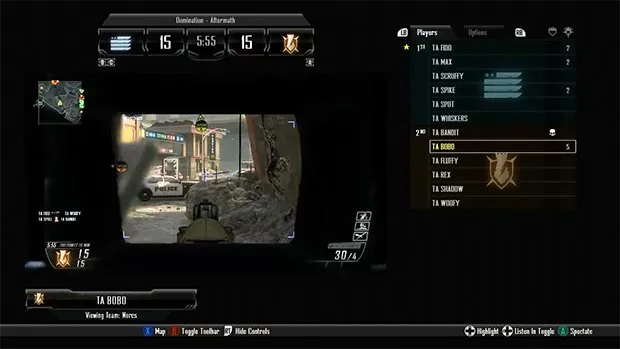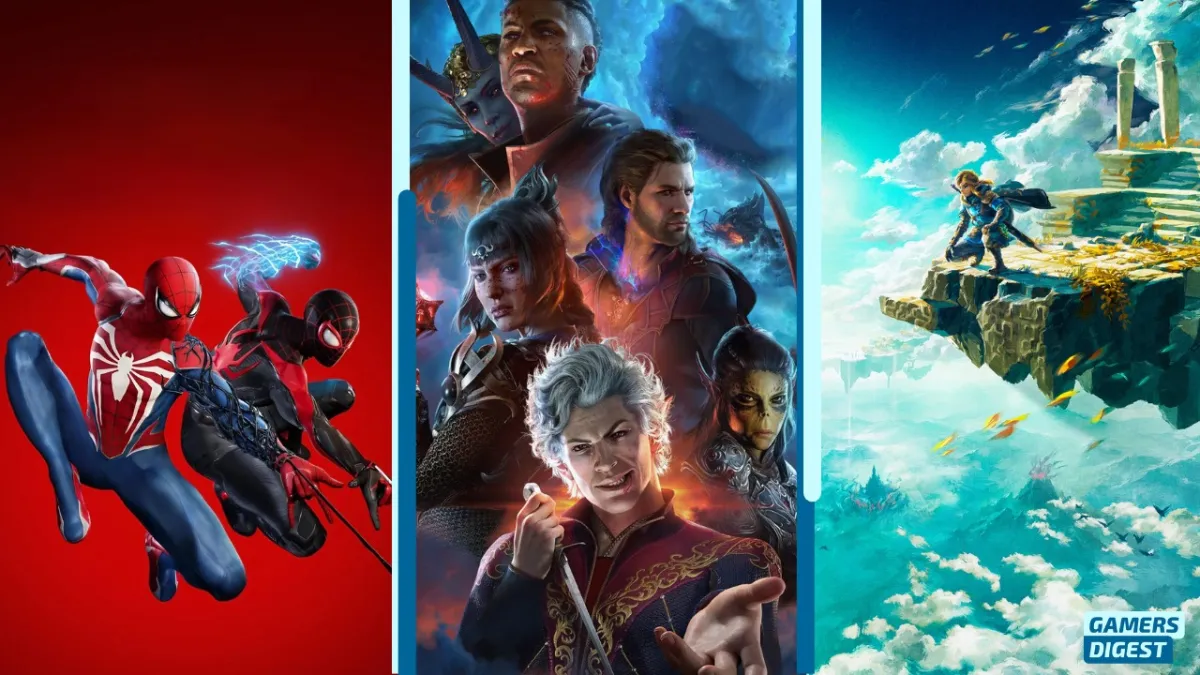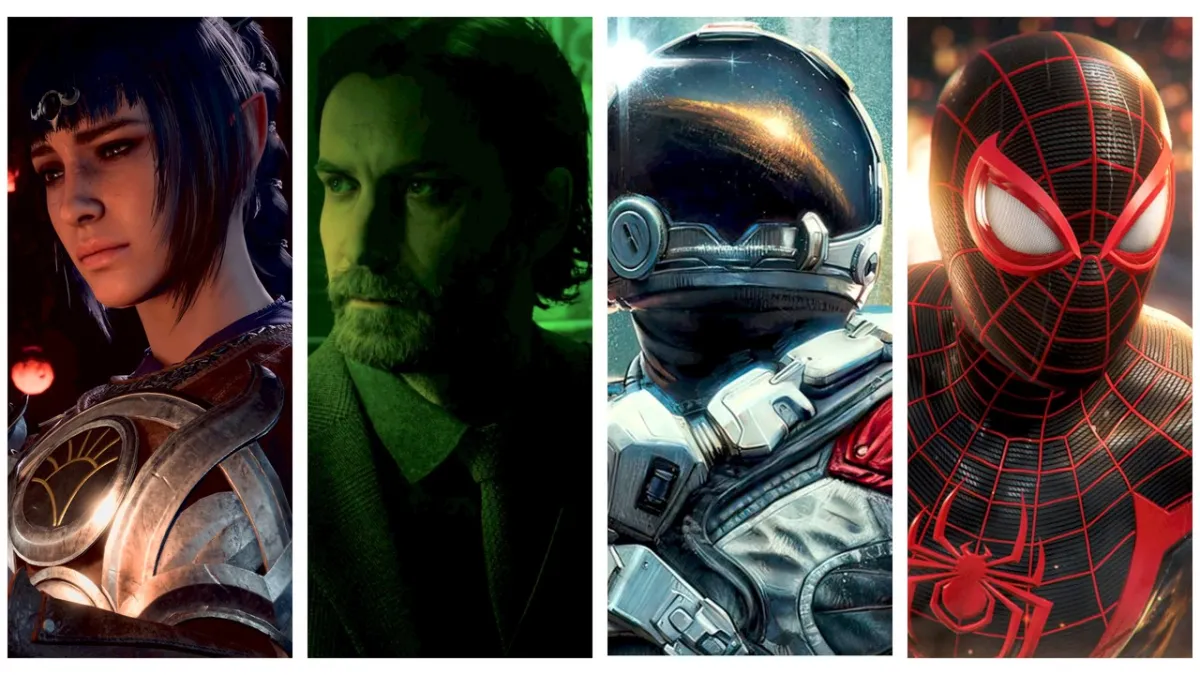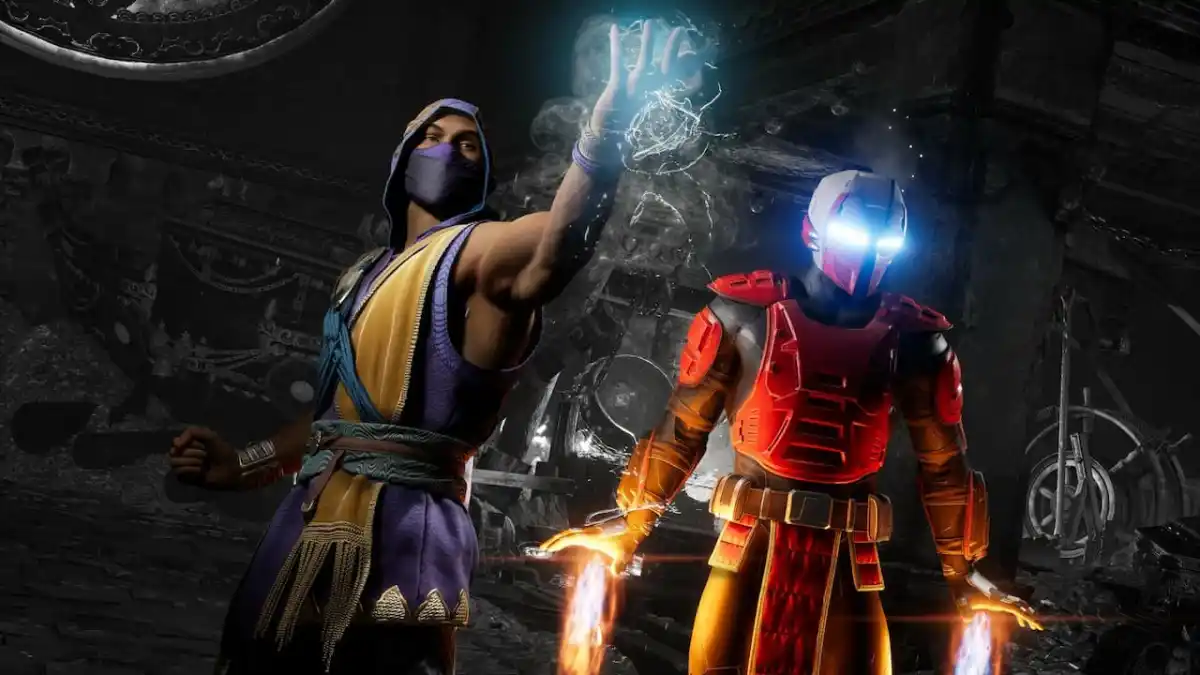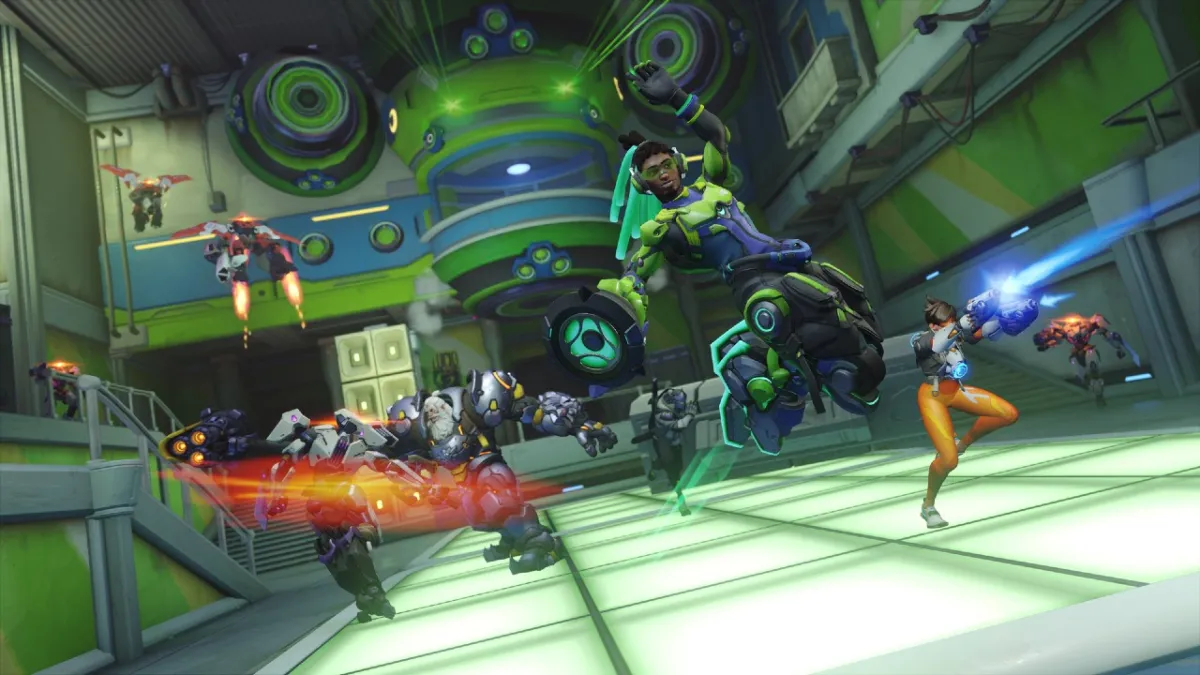When I found out in April that the next installment in the Call of Duty franchise was titled Black Ops 2, I enjoyed a few minutes of exasperated laughter. I naturally envisioned it breaking sales records as every 14-year old in America and their expressionless parents lined up at Midnight outside of the local GameStop to eagerly await gaming’s annual exercise in homophobic futility. You’ll hear more homosexual slurs in an online match of a Call of Duty title than you’d expect to find at the nearest Chick-fil-A.
I scoffed even harder when Activision promised that Black Ops 2 would provide “meaningful innovation” to the series. Added achievements for camping to build killstreaks, perhaps? How about a perk that allots you an additional ten grenades to spam upon spawning? My initial condescension toward Black Ops 2 was a culmination of countless years watching Activision profit off of an engine, mechanics system, and concept that had experienced minimal advances over the course of five years. I simply wasn’t able to separate the potential of one installment from the dormancy of the series as a whole. With the announcement of Black Ops 2, it seemingly appeared that Activision was finally willing to admit that they were content with resting on their laurels with two creative entities – one set in the past, one in the near future, neither of which has shown any significant signs of slowing down commercially. It simply seemed as if Black Ops 2 was Activision’s metaphoric middle finger to the gaming industry, one that screamed, “Only Call of Duty is capable of raking in this much dough with such a formula, and there’s not much you can do about it.”
Two months later, I was sitting in a small theater during my E3 appointment with Activision as some Treyarch devs walked members of the media through a portion of the Black Ops 2 campaign. What was displayed was nothing earth-shattering, but the idea of branching storylines and the concept of “Strike Force Missions” had me intrigued. My sarcastic smirk toward Black Ops 2 had been less prominent when I walked out of the theater than before I’d gone in.
Another two months has past, and Treyarch has now blown the lid off of Black Ops 2 multiplayer at GamesCom 2012. They’ve made me eat my arrogance toward their franchise.
It’s incontrovertible. Activision and Treyarch have heard the claims that Call of Duty represents everything that is creatively wrong with the modern gaming industry. They’re fully aware of the notion that the franchise is in dire need of an overhaul. Most importantly, they’re doing something about it. Killstreaks being replaced with a more balanced system of objective-based rewards that promote team-play? A reworking of the Prestige system in favor of a league-style ladder that matches up players based on skill level? This can’t be Call of Dutywe’re talking about. Treyarch is taking the improvements one step further with a complete makeover of the Class structure, essentially enabling you to build your Class from the ground up with a 10-point system, allowing you to tailor your loadout specifically to your playstyle without being hampered by extra gadgets and perks that you’re likely to never use.
I’m still wary that the addition of a “shock charge” grenade is just asking for every battlefield to be turned into a single, massive electricity field by spammers, and could come to be as infuriating a weapon as the taser in Ghost Recon: Future Soldier. Similarly, when you’re trying to present a more balanced multiplayer experience, implementing such a game-swaying Scorestreak as an Autonomous Ground Robot (AGR) is not the brightest idea. This AI-controlled tank (which you can assume control of) looks capable of mowing down entire teams much like the Gunship of Black Ops, which had a knack for deterring people from completing matches once one was obtained by the enemy. It’s great for the person inside of it. For the people on the ground, trying to find a spawn point that’ll allow them to last more than a few moments? Not so much, and I’d hoped that Treyarch would recognize that.
Nevertheless, Treyarch has my attention. Will Black Ops 2 revolutionize console multiplayer? Maybe it will. Perhaps it won’t. But while they do have my attention, it’s the pioneering concept of the game’s “Shoutcasting,” or “CoDCasting” as it’s been dubbed, that will hold it until November.
It’s not without a touch of heavy irony that a franchise epitomizing creative stagnation has introduced the very feature that could give the sluggish competitive console gaming market the jolt that it desperately needs. What’s perhaps even more mind-boggling is the fact that if Shoutcasting in Black Ops 2 lives up to its potential, it won’t be the first time a Call of Duty title has been the catalyst for a reformation of console gaming. In 2007, Call of Duty 4: Modern Warfare released to rave reviews. Aside from its critical and commercial success however, Modern Warfare would see the implementation of features that laid the groundwork for which every future console FPS would build upon. There’s not a single FPS being developed today that doesn’t have remnants of Modern Warfare’s XP and ranking structure. We’re now even beginning to see elements of its “Create a Class” and “Perk” system reiterated by other games of the genre. The concept of gaining experience points for getting kills and completing objectives, eventually earning enough to move up in rank, has become the ultimate incentive to an FPS’s re-play value and a major factor in the longevity of games that include the attraction of playing to “out-rank” your friends.
Meanwhile, competitive console gaming in North America has been the equivalent of a rocket unable to get completely off of its launch pad. To do so, it needs a pair of boosters firing simultaneously and in synchronization, which metaphorically in this situation are titles that appeal to potential spectators, and a TV or streaming platform through which the masses can view them. For every successful major gaming league that employs the console fanbase, there’s one that fizzles out, and the ones that remain stable generally target a very specific clientele. The Evolution Championship Series (EVO) for example, is busy breaking spectator records, yet its title list is exclusively related to the Fighting genre and unlikely to appeal to those uninterested in the strategy and mechanics of such games.
You of course remember the debacle that was the Championship Gaming Series? It was the one that attempted to build a gaming league comprised of “franchises” with such marketable names as the “Dallas Venom” and “Carolina Core.” The same one that held a gamer draft at the Playboy Mansion and attempted to combine multiple gaming genres and squeeze them under one roof without sacrificing quality. It didn’t work. Though given coverage by DirecTV, gamers quickly realized that the organizers of the CGS sought to portray gaming as a novelty, a spectacle of exuberance, rather than as a serious combination of entertainment and prowess. In other words, it became clear that they wanted to appeal to those who would rather watch Lingerie Football than an NFL production. The CGS folded after two seasons.
Major League Gaming on the other hand, has managed to provide console gamers for the better part of a decade with a legitimate platform to showcase their skills in various genres. Since 2004, the league has experimented with an assortment of different titles, picking up and subsequently dropping games from its list as seasons progressed and enthusiasm in certain games dwindled. Gears of War, Tom Clancy’s Rainbow Six Vegas 2, and a number of Call of Duty titles were at one time or another a part of MLG competition. Yet the dropping of these games was often viewed as a necessary evolution of the league and its interests. Then the utterly shocking news broke in April that Halo, a game that appeared on the main stage of every MLG tournament since 2004, would be dropped from future live MLG events. Chalk it up to Reach having a piss-poor design for the competitive circuit perhaps, but whatever the reason, the shockwaves of the news had been felt. And to add insult to injury, Halo’s headlining position in MLG was replaced not by another console FPS, but by an RTS for the PC in StarCraft II. No other event has better characterized the current, struggling era of competitive FPS console gaming.
An FPS franchise in transition and in dire need of renovation. A facet of competitive gaming necessitating a game and functionality to permeate casual audiences. The Call of Duty series and competitive FPS console gaming were inevitably destined on a collision course. Enter Treyarch, Call of Duty: Black Ops 2, and the concept of Shoutcasting.
Featuring a set of in-game tools that will allow players to livestream a multiplayer match to the Internet without the need for additional capturing software, Shoutcasting has the potential to transform the very landscape of competitive gaming. Using this feature, gamers will be able to completely customize and optimize the way people view a particular match as quick and streamlined options give you the ability to adjust the HUD, change spectator views, and even listen in on a specific player’s mic. To prevent spectators from “ghosting” in attempt to give one team an advantage over the other, players in-game won’t be able to hear commentators, and there’s a 15-second delay time from the match to the stream so as to avoid potential exploiters.
Shoutcasting targets and seeks to rectify two major factors that deter many gamers from also becoming spectators: the issue of perspective and the disparity of game knowledge between viewers.
The obstacle of providing the right perspective for spectators during FPS matches is one that competitive gaming leagues have improved upon, but have never entirely overcome. Unlike a sporting event in which the majority of the action can be captured with one camera panning from side to side, and within a single frame, an FPS match features multiple viewpoints from multiple players who are all participating in various degrees of action at the same time. While a commentator might choose to follow one player running to grab an objective, a player on the opposite end of the map may have just pulled off a crazy headshot, with the streaming spectator’s only indication being the roar of the live audience. With Shoutcasting, the tools you need to display the ultimate presentation are provided to you. Every visual element you see on-screen can be tuned on or off.
While the concept of livestreaming competitive matches is not a new one by any means (it’s currently utilized by many PC gamers and even certain console players with the help of capture boxes), its introduction to the casual console gamer may prove to be an invaluable asset to the competitive gaming community going forward. Now, you have the power to completely control the spectator experience. Missing a match’s most significant action is a thing of the past, as Shoutcasting allows you to display a picture-in-picture mode so you can see an overhead of the map whilst watching the perspective of one player. Notice that each team’s best player is moving toward the same location? Effortlessly switch to one of their first-person views and capture the epic shootout as it happens. Visual cues easily keep you aware of top fraggers and who’s completing what objective so that you’ll always know where and how to provide your audience with the best possible perspective. The Shoutcasting features of Black Ops 2 were created with a specific goal in mind – to give users the capability of becoming commentators while concurrently building upon the production values of live, streamed eSports, and providing a new level of gaming spectator interactivity.
Shoutcasting in Black Ops 2 will also attempt to minimize the level of entry required of spectators to enjoy watching a competitive gaming event. As it stands now, anyone interested in watching a competitive gaming match of any genre better have a thorough knowledge of that game’s rules and mechanics, otherwise they’ll find themselves lost in commentator jargon and an array of bright lights and colorful explosions. Inspired by television productions of professional sports, Black Ops 2 will implement a clear and comprehensible information hub at the top of the screen displaying the score of each team on either side of the remaining time in the match. The addition of these essential visual elements, even with a facet as simple as displaying player tags prominently on-screen, will diminish the need for commentators having to call out all of the extraneous elements of a match and will allow them to concentrate on calling the more complex components while adding color to their commentary. Players that may have been previously aloof when it comes to analyzing an FPS match will gain a greater understanding through Shoutcasting which could help ease them and even entice them into watching competitive FPS gaming on a regular basis.
We continuously ask the question whether or not it is the responsibility of the AAA developers and publishers to be the paradigm of innovation in gaming. Should the ones topping the sales charts also be the ones to usher in a new age of advancement within the industry? Here’s the cold hard truth: Activision has employed and perfected a system that embodies the concept of re-play value in regard to the FPS genre. So much so, that they could go along making Black Ops 3, 4, and 5, and Modern Warfare 4, 5, and 6, watching sales records shatter and money pile up from year to year. It’s simply the way in which the modern gaming industry is composed. AAA games now cost more to make than blockbuster films, so it’s only natural that companies are unwilling to take creative risks for the fear of a financial bust. Activision has control of the key to commercial success in this market as well as all of the copies, and as much as gamers, analysts, and I yearn for them to strive toward innovation, they don’t need to do a damn thing differently. The sales of Modern Warfare 3 infinitely prove that.
But this time around, with Black Ops 2, the winds have changed direction in Santa Monica. Activision has listened to their audience and they’ve heard the criticisms. It seems as though they genuinely care about straying away from their characterization as “game-makers for 14-year olds” and as a company that is perfectly content with putting out a creatively static franchise year after year. It seems as if they are legitimately concentrating on gaining back the loyalty of those fans they’ve discouraged, and are intent on regaining the position of FPS eminence they held just years ago.
I for one, applaud Activision and Treyarch for using their multi-million dollar budget on something else besides marketing, because years from now, we might come to view Black Ops 2 in the same light many currently view the original Modern Warfare: a revolutionary vehicle that forever transformed the landscape of FPS multiplayer on consoles.


